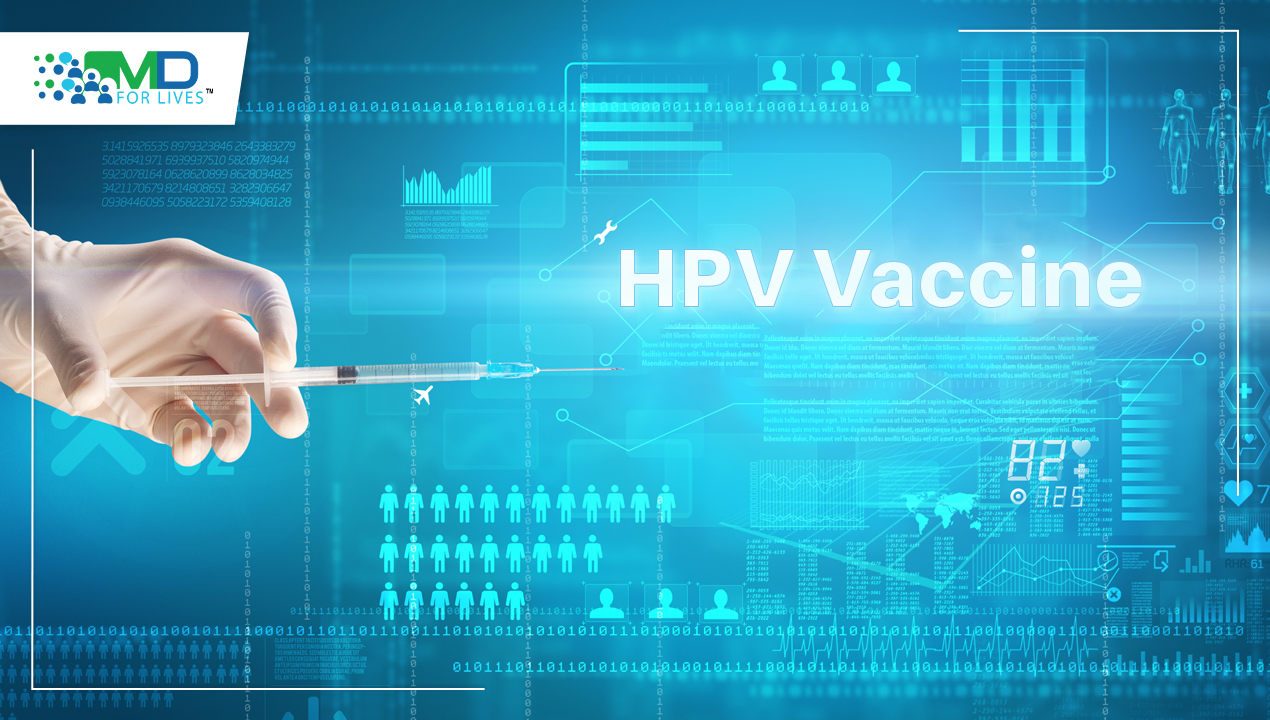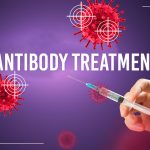HPV vaccines for cervical cancers are nearly 100% effective in preventing cancers of the cervix caused by HPV viruses.
The cervix is the uterus’s lowest point (where a baby grows during pregnancy). It is shaped like a donut and connects the uterus to the vaginal opening. It is covered in cell-based tissues. These healthy cells have the potential to develop into precancer cells.
Cervical cancer affects approximately 14,000 people in the United States each year. Ages 35 to 44 are the most common in which cervical cancer is discovered. The average diagnosis age is 50. Every year, approximately 4,000 people are killed by cervical cancer. As a result of screenings and the HPV vaccine, this rate is decreasing.

The majority of cervical cancers are caused by the sexually transmitted virus HPV. HPV is spread through sexual contact (anal, oral, or vaginal) and has been linked to cancer. The majority of people will contract HPV at some point in their lives and be unaware of it because their bodies fight the infection. However, if the body does not fight the infection, it can cause the cervix’s cells to transform into cancerous cells.
Cervical cancer is detected using the Pap test and the HPV test. Cervical cancer screenings can detect abnormal or problematic cells in their early stages before they develop into cancer. If these cells are discovered early, cervical cancer is highly treatable and less likely to spread.
How does the HPV vaccine prevent Cervical Cancer?
The HPV vaccine deceives the body into believing that it has been exposed to the actual HPV virus. This stimulates the immune system to produce antibodies against HPV. This is how the body typically fights and eliminates infections.

The body’s immune system has a memory. This means that if the body is exposed to the real virus in the future, it will recognize HPV and have antibodies ready to fight it, making HPV much easier to combat. HPV can alter the DNA in our cells, increasing their proclivity to become cancerous. By preventing HPV infection, we can help prevent these cell changes and lower the risk of cancer associated with HPV.
Does HPV increase the risk of Cervical Cancer?
Human papillomavirus infection is the main risk factor for cervical cancer. A family of more than 150 viruses HPV has. Some of them cause papillomas, which are more commonly referred to as warts. Certain HPV strains can cause warts on or near the female and male genital organs, as well as in the anal area. These are known as low-risk HPV types because they are rarely linked to cancer. Other types of HPV are classified as high-risk because they have been linked to cancers such as cervix, vulva, and vaginal cancer in women, penile cancer in men, and anus, mouth, and throat cancer in both men and women.
Within months to a few years of becoming sexually active, nearly all sexually active people are infected with HPV. Half of these infections are caused by a high-risk HPV type. Both men and women can be infected with HPV and develop cancers caused by it. The squamous cells that line the inner surfaces of these organs are infected by HPV. As a result, the majority of HPV-related cancers are squamous cell carcinomas. Some cervical cancers, known as adenocarcinomas, are caused by HPV infection of gland cells in the cervix.
New insights on the impact of HPV Vaccine on Cervical Cancer
A new study from Kenya adds to the growing body of evidence that a single dose of the human papillomavirus (HPV) vaccine is highly effective in protecting young women from cervical infection with cancer-causing HPV types.
The KEN SHE trial, which is being conducted in Kenya, is part of a global effort to make HPV vaccines more widely available around the world.
In the randomized clinical trial, rates of HPV infection were compared between girls and young women between the ages of 15 and 20 who received a single dose of the HPV vaccine and those who received the meningitis vaccine first and the HPV vaccine 18 months later.
The Bill & Melinda Gates Foundation funded the KEN SHE trial, which enrolled 2,275 girls and young women aged between 15 and 20 years at three sites in Kenya. Participants had to be sexually active but had no more than five lifetime partners, were HIV negative, and had not previously received an HPV vaccine. Just over 60% said they had only had one sexual partner in their entire lives.
Participants were assigned to one of three groups at random:
- A single dose of the bivalent HPV vaccine was given to one group (Cervarix)
- The nonavalent HPV vaccine was given to the second group (Gardasil 9)
- The third group was given a vaccine to protect them from meningococcal disease.
At 18 months, the primary outcome of the study was vaccine efficacy (the incidence of new persistent infections with an HPV type targeted by the vaccine). Participants who did not have an HPV infection with one or more of the HPV types targeted by the vaccine within the first three months of the study were included in this analysis.
Those who were infected with any of these HPV types during the first three months were kept in the study, and all women who had an abnormal Pap test were followed until their infection cleared up or they received treatment.
At 18 months after enrollment, only 2 of 985 women (0.2%) who received one of the two HPV vaccines had a new persistent cervical HPV infection, as opposed to 36 of 473 women (7.6%) who received the meningococcal vaccine (control group). Both vaccines were 97.5% effective against HPV.
To determine how long the defense against HPV infection lasts, the KEN SHE team has been following every participant for a total of 3 years.
Reference:
- Cervical cancer. Cleveland Clinic. https://my.clevelandclinic.org/health/diseases/12216-cervical-cancer. Accessed on: 11.07.2022
- The HPV vaccine. CANCER RESEARCH UK. https://www.cancerresearchuk.org/about-cancer/causes-of-cancer/infections-eg-hpv-and-cancer/the-hpv-vaccine. Accessed on: 11.07.2022
- HPV and Cancer. NATIONAL CANCER INSTITUTE. https://www.cancer.gov/about-cancer/causes-prevention/risk/infectious-agents/hpv-and-cancer. Accessed on: 11.07.2022.
- More Evidence that One HPV Vaccine Dose Protects against Cancer-Causing Infections. NATIONAL CANCER INSTITUTE. https://www.cancer.gov/news-events/cancer-currents-blog/2022/cervical-cancer-hpv-vaccine-one-dose-kenya. Accessed on: 11.09.2022

MDForLives is a global healthcare intelligence platform where real-world perspectives are transformed into validated insights. We bring together diverse healthcare experiences to discover, share, and shape the future of healthcare through data-backed understanding.






